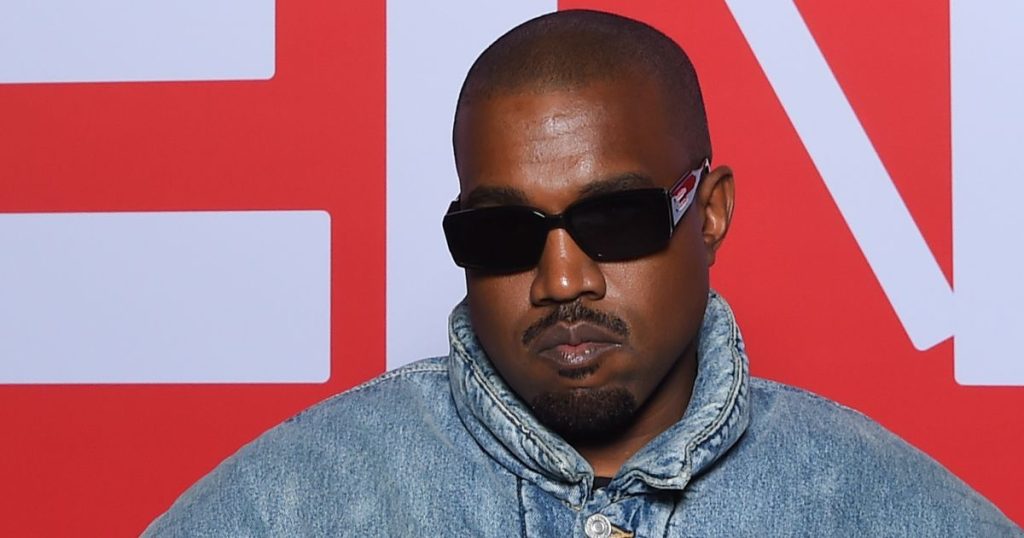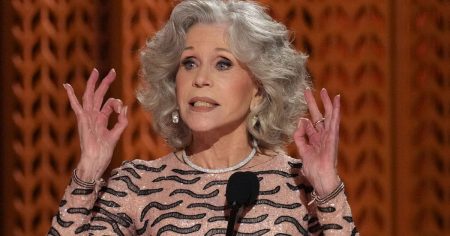Kanye Ye West’s Latest Antisemitic Controversy Sparks Concern on The View
Kanye West, now legally known as Ye, has once again found himself at the center of controversy, this time for promoting a website that sold T-shirts adorned with swastikas during the Super Bowl. The incident has sparked a heated discussion on The View, with co-host Alyssa Farah Griffin arguing that Ye’s actions should not be dismissed lightly. Griffin emphasized that while Ye has been accused of antisemitic behavior in the past, his recent actions are particularly concerning due to their explicit nature and potential reach. Host Joy Behar agreed, noting that Ye’s history of antisemitism appears to be “catching up with him” after years of controversial statements. Earlier in February, Ye made headlines for posting antisemitic content on X (formerly Twitter), including labeling himself as a Nazi and professing his love for Adolf Hitler, the genocidal dictator responsible for the Holocaust. Griffin acknowledged that Ye has been “given a pass” for his actions in the past, often with the excuse that he may have mental health issues. However, she stressed that mental illness does not excuse bigotry or racism. In a recent post, Ye claimed he was misdiagnosed with bipolar disorder and has now been diagnosed with autism, but Griffin made it clear that mental health struggles do not justify hateful rhetoric.
The Broader Implications of Ye’s Influence
Griffin further highlighted the gravity of Ye’s actions by pointing out his immense social media influence. With more Instagram followers than there are Jews in the world, Ye’s words carry significant weight, particularly among young and impressionable audiences. This reality makes his promotion of antisemitic symbols and ideas even more alarming. Sunny Hostin, another co-host of The View, echoed Griffin’s concerns, stating, “There’s something really wrong going on here with Kanye West.” Hostin emphasized the historical ties between the African American and Jewish communities, both of which have faced centuries of oppression. “Oppressed people must fight together,” she said, expressing dismay that Ye, as a prominent Black figure, wouldेवict such divisive and hateful rhetoric. Hostin’s comments underscored the importance of solidarity between marginalized communities and the danger of Ye’s actions in undermining that unity. Sara Haines also weighed in, describing Ye’s behavior as “hate-filled awfulness” that cannot be ignored. Behar summed up the discussion by labeling Ye a “compulsive attention seeker,” suggesting that his antics are often driven by a desire for publicity rather than a genuine commitment to any cause.
Mental Health and Personal Responsibility
Griffin and the other hosts were careful to acknowledge that Ye’s behavior may be influenced by his mental health struggles, but they were quick to clarify that this does not absolve him of responsibility for his actions. Griffin pointed out that millions of people live with mental illness without engaging in bigotry or racism. While mental health is an important factor to consider, it cannot serve as an excuse for promoting hate speech or antisemitic ideologies. Hostin added that Ye’s actions have real-world consequences, particularly for Jewish communities that have already faced centuries of persecution. Griffin’s comments reflect a broader societal debate about the intersection of mental health and personal accountability, particularly for public figures who wield significant influence over their followers. By emphasizing that mental illness does not justify hate speech, the hosts of The View aimed to draw a clear line between understanding and condoning such behavior.
The Historical Context of Antisemitism and Solidarity
Hostin’s remarks about the historical ties between the African American and Jewish communities were particularly poignant. Both groups have faced systemic oppression and violence, and their shared experiences have often led to moments of solidarity. However, Ye’s recent actions have undermined this tradition of unity, as he has chosen to embrace symbols and ideologies that are deeply harmful to Jewish people. His promotion of swastikas and Nazi ideology is not only a betrayal of the shared struggles of marginalized communities but also astep backward in the fight against racism and bigotry. Hostin’s comments served as a reminder of the importance of standing together against hate, rather than allowing divisive rhetoric to drive communities apart. By rejecting Ye’s actions, the hosts of The View sent a clear message about the need for solidarity in the face of oppression.
The Power of Social Media Influence
Griffin’s observation about Ye’s massive social media following highlights the broader implications of his actions for young people. With more Instagram followers than there are Jews in the world, Ye’s influence is unparalleled. His promotion of antisemitic symbols and ideas has the potential to spread hate to millions of impressionable young fans. This reality makes it even more important for public figures like Ye to be held accountable for their actions. Griffin and the other hosts stressed that Ye’s influence is not just a matter of personal choice but also a responsibility to use his platform for good. By promoting antisemitic content, Ye is not only harming Jewish communities but also contributing to a toxic online environment that can have lasting effects on young people. The hosts of The View urged YE to reflect on the impact of his words and actions, and to consider the harm he is causing.
Conclusion: The Need for Accountability and Solidarity
In conclusion, the hosts of The View made it clear that Ye’s recent actions cannot be dismissed as mere antics or the result of mental health struggles. While mental illness may play a role in his behavior, it does not excuse his promotion of antisemitic symbols and ideas. Griffin, Behar, Hostin, and Haines all emphasized the importance of accountability, particularly for public figures with such immense influence. Ye’s actions have real-world consequences, from spreading hate to undermining the solidarity between marginalized communities. By rejecting Ye’s rhetoric and standing up for what is right, the hosts of The View sent a powerful message about the need for accountability, unity, and responsibility in the face of hate. As Griffin so eloquently put it, mental illness does not justify bigotry, and the world needs more people to stand against hate, not perpetuate it.















